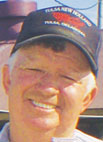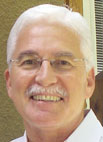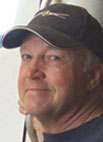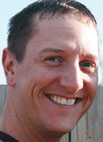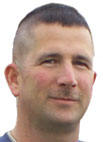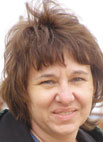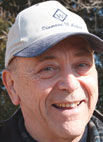Dairying with Precision
There was a time when Jerry Carnes, his three siblings and parents spent long hours milking 22 cows a day by hand. That was back when Carnes Dairy was just beginning on a 240-acre spread in Rose, Okla., that his parents, Paul and Floy Carnes, had purchased on March 18, 1950.
A Good Steward
Manuel Barnes has spent his life trying to be a good steward of the land. Manuel received his degree in Zoology from the University of Arkansas. He worked with the Corps of Engineers for 13 years in two of their district offices and at their main laboratory in Vicksburg, Miss. Manuel also received a Master of Science specializing in Water and Land Resource Planning from Colorado State University. Manuel formed EGIS, Inc., an environmental consulting firm, in 1990.
Steers Don’t Live by Grass Alone
Located just outside Cameron, Okla., the French Ranch combines family tradition with modern know-how and a big dose of self-reliance to stand proudly as one of the larger stocker steer operations in Eastern Oklahoma.
Flying with Turkeys
Everyone knows that commercially raised turkeys can’t fly; they’ve lost that particular limited ability that their wild relatives retain. However, Cleet Baker of Fayetteville, Ark., and his wife Jan Dji-Lynn have turkeys and flying in their backgrounds. Jan spent six years in the Air Force as an F-16 mechanic and getting to fly at times, while Cleet took over the 27,000 head turkey farm his father started in 1984. Cleet spends his days making a living by running his Dee-Ran farm located in West Fork, Ark., which is comprised of a 50 by 500-feet brood house and three grow-out houses where he raises hen turkeys for Cargill, Inc. The couple married in October of 2008. “There’s a reason I was 34 before I got married. In addition to Jan being beautiful, I knew that since she was raised on a horse farm in Montrose, Colo., and was a working kid, that she had good morals and a tough work ethic. Since she grew up on a farm, she knows what it takes to be in farming and that really mattered to me,” Cleet said. Jan chuckles when she says, “I have a strong personality and a different sense of humor. No man has been strong enough to deal with that in the past, but Cleet has a sense of humor and he’s tough, so it works.”
Where They Want To Be
DeeDee and Ron Haynes started raising registered Red Angus cattle because their youngest son, Jordan wanted to show Red Angus cattle. They visited the Orys at their Circle 7 Red Angus Ranch in Missouri at the suggestion of a friend to see what the breed was all about. They had raised commercial cattle and at the time registered Beefmaster. “Registered Beefmaster didn’t work out too well with our kids showing so we switched to Red Angus and started showing those. That is how we built this herd,” Ron said. “Whatever breed you have is what you think is the best,” DeeDee said. “We like a color, red. I know most people like the black but, we just like red.” DeeDee believes Red Angus cattle have good dispositions, have a better coat, are more heat tolerant and marble out just as well as Black Angus cattle. “They are just a good breed,” DeeDee said.
Breeding Your Replacements
Charles Hatfield had his first taste of raising cattle from his father. He had his first calf of his very own at age seven. “I had Angus ever since high school,” he said. “In 1980 or 1981, we started switching over to Brangus. We didn’t sell our Angus cows and then buy back,” Charles said. “We just put three quarter Brangus bulls on them and then in one cross we had Brangus. It took me about ten years to get my uniformity back.”
Driving the Seedstock Business
Henson Farms is a small, but powerful operation, says Dan Henson of his family-run, 35-acre Limousin cattle farm in the Bloomfield Community in Benton County.
A Woman’s Work is Never Done
Lesia Foresee of Lead Hill, Ark., gives new meaning to the old saying, “A woman’s work is never done.” In addition to her full-time job in the office at the Tyson Feed Mill in Bergman, Ark., Lesia raises meat goats and feeder cattle with her parents on their farm in northern Boone County. Her nights and weekends are spent caring for over 125 head of goats and 70 head of feeder calves. “We usually plan big projects for the weekend. Right now, we are mostly cleaning up brush,” said Lesia. When she does have spare time, Lesia enjoys trail riding one of her two horses, a Missouri Foxtrotter and a Quarter Horse.
The Steps of An Angus Breeder
The Diamond W Angus farm is a five generation farm, bought in 1933 by Gail Weisenbach's grandparents, Tony and Minnie Price. When Jack and Gail Weisenbach were married in 1977; they started out bottle feeding 10 baby calves. They raised commercial cattle until 2004, and then changed to registered Angus cattle.
Living Heritage & History
With the idea of living on the land like generations of self-reliant people in the past lived, Tina Marie Wilcox moved onto her 28 acres of wooded ridge-top near Leslie, Ark. She’s one of the back-to-the-landers who stayed, keeping a connection to her roots. In 2009 she co-authored and published a book with Susan Belsinger, titled "The Creative Herbal Home," a guide for both beginners and more experienced home herbalists. She raises a vegetable and herb garden.

